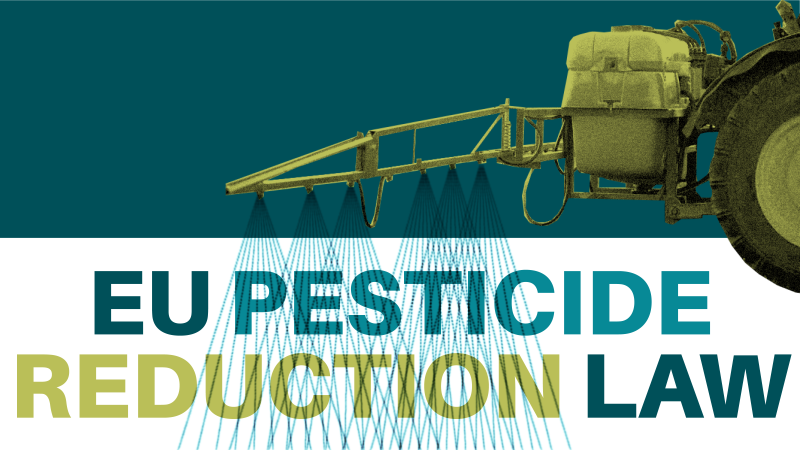Stay always informed
Interested in our articles? Get the latest information and analysis straight to your email. Sign up for our newsletter.

As the European Parliament prepares to vote on its pesticide reduction law (SUR) in plenary this week, new evidence exposes the pesticide lobby’s latest efforts to delay and derail this law.
The new roundup of lobby evidence reveals:
The core group of corporate actors lobbying against the pesticide reduction law together declared a total annual lobby spending of 15 million euros (on all policy issues including the SUR). This group consists of Bayer, BASF, Syngenta and Corteva; their lobby associations CropLife Europe and Euroseeds; and five other outfits. In addition, farm lobby Copa-Cogeca has an annual self-declared lobby spending of 1.5 million euros. However, these self-declared figures are normally vast underestimates.
In recent months the SUR is being further undermined in the negotiation process:
One big outstanding problem is that the proposed methodology by the Commission to measure actual pesticide reduction is very flawed. This would make it impossible to measure real reduction of pesticides and will give the impression of reduction when it's not actually happening. The European Parliament had the opportunity to fix this but failed to do so due to resistance by political groups on the right, despite efforts by the Green Rapporteur.
As for the Council, the situation is equally dire. The Spanish Presidency of the EU, with the Commission, have proposed to heavily compromise on the targets by deleting both national targets to reduce the risk and use of pesticides, and to reduce the use of the more hazardous pesticides.
Nina Holland, campaigner and researcher at Corporate Europe Observatory says:
“When the EU announced its EU Green Deal and Farm to Fork Strategy, it appeared to recognise the need to act urgently to tackle the big ecological crises of our times. But years of misleading lobbying efforts by the pesticide industry mean that this week the EU parliament will be voting on a severely hollowed-out pesticide reduction law (SUR).
“Just like the oil industry funded climate deniers in the past, corporations like Bayer and BASF, their lobby groups and political allies have been waging an outright irresponsible and scandalous lobby campaign to stall, undermine, and derail the pesticide reduction law SUR.
“At a time when we need to be tackling the causes of biodiversity decline, not in the least to protect food security in the long run, the EPP and other politicians are prioritising corporate well-being big time over health the environment”.
ENDS
For more information contact: Nina Holland, Corporate Europe Observatory researcher and campaigner nina@corporateeurope.org (+32) (0) 466 294 420
Notes to the editor: